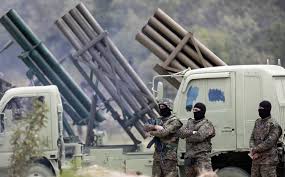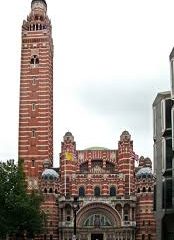Understanding Hezbollah’s Role in Middle Eastern Politics

Introduction
Hezbollah, the Lebanon-based militant group and political party, has been a significant player in Middle Eastern politics since its inception in the early 1980s. With the ongoing tensions in the region, its impact extends beyond Lebanon, affecting the geopolitical landscape of the entire area. Understanding Hezbollah’s military and political strategies is crucial for analysing the ever-evolving dynamics of conflicts in the Middle East.
Hezbollah’s Formation and Objectives
Founded in response to the Israeli invasion of Lebanon in 1982, Hezbollah emerged from a coalition of Shia groups with the backing of Iran. Its initial goals included liberating Lebanon from Israeli occupation and promoting social services for the Shia community. Over the years, Hezbollah has evolved into a formidable military entity, boasting an extensive arsenal and significant influence within Lebanon’s political framework.
Military Capabilities and Activities
Hezbollah’s military wings have been involved in numerous conflicts in the region, most notably the 2006 Lebanon War against Israel. Reports estimate that the group possesses tens of thousands of rockets and possesses advanced military technology, allegedly supplied by Iran. Its military prowess has made it a vital ally for the Syrian government during the ongoing civil war, showcasing its strategic importance in the broader regional power struggle.
Political Influence in Lebanon
In addition to its military presence, Hezbollah plays a significant role in Lebanese politics. It holds seats in the Lebanese parliament and has participated in various coalitions, impacting legislative decisions and national policies. The group’s ability to navigate the complexities of Lebanese sectarian politics underscores its resilience and adaptability.
International Relations and Reactions
Hezbollah’s influence has drawn mixed reactions internationally. While Iran and Syria maintain supportive relationships with the group, many Western countries, including the United States, designate it as a terrorist organisation. This designation complicates diplomatic efforts in the region and influences policies towards Lebanon. Recently, neighbouring countries have become increasingly concerned about Hezbollah’s extensive military capabilities and its role in regional conflicts.
Conclusion
The significance of Hezbollah in the Middle East cannot be understated. As a military, political, and social entity, it shapes the discourse on security, sovereignty, and governance within Lebanon and beyond. The continuing developments in the region suggest that Hezbollah will remain a focal point in discussions about Middle Eastern stability. Observers and policymakers alike must closely monitor its actions as they navigate the complexities of region-wide dynamics.









